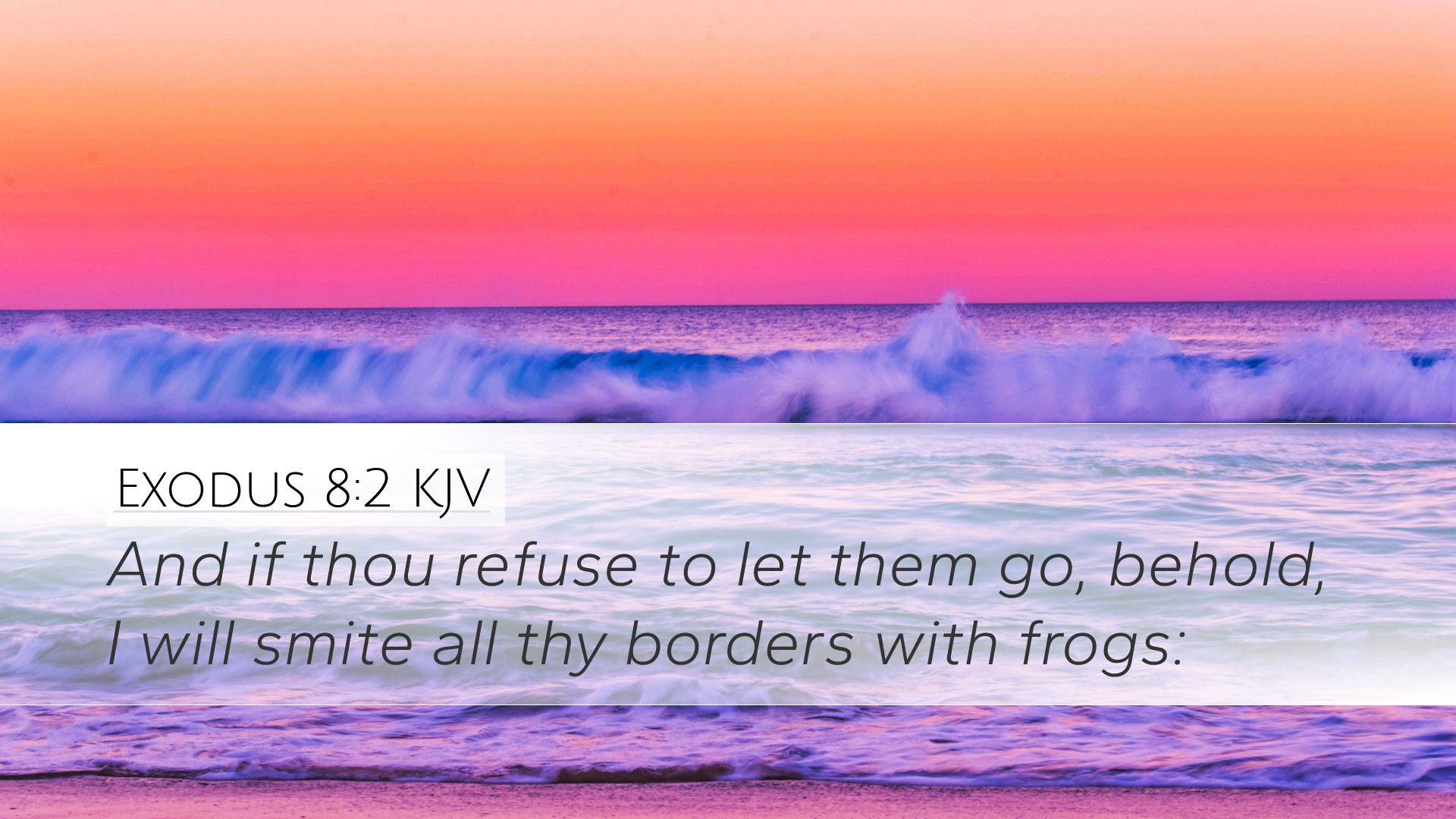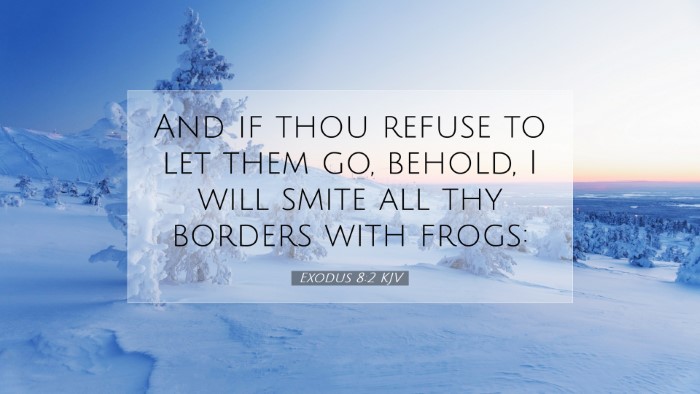Commentary on Exodus 8:2
Verse Citation: Exodus 8:2 - "And if thou refuse to let them go, behold, I will smite all thy borders with frogs."
Introduction
The second plague of Egypt, as recorded in Exodus 8:2, is marked by the Lord's declaration of judgment in the form of frogs. This passage not only illustrates God's power and authority but also serves to demonstrate the stubbornness of Pharaoh, embodying the resistance to divine will.
Contextual Analysis
Exodus chapters 7 through 12 establish the narrative of the plagues laid upon Egypt as a means to compel Pharaoh to release the Israelites from bondage. This verse follows the first plague—the turning of the Nile into blood—emphasizing the escalating nature of God's judgments. Commentators agree that the plagues serve as both a demonstration of God’s sovereignty over nature and a direct challenge to the Egyptian gods.
Historical Background
- Egyptian Deities: Frogs were considered sacred in Egyptian culture, linked to fertility and the goddess Heket.
- Pharaoh's Resilience: Pharaoh's hardened heart symbolizes the resistance to acknowledging God's authority, a theme prevalent throughout the plagues.
Theological Insights
This verse reveals significant theological implications regarding God's character, justice, and mercy.
Divine Authority
As conveyed by Matthew Henry, this plague illustrates God’s dominion over creation and His ability to exert control over even the minutiae of nature. The mention of "smite all thy borders with frogs" indicates that the Egyptian land would be overwhelmed in a manner reflecting both God's power and Pharaoh's folly.
Judgment and Mercy
Albert Barnes elaborates on the duality of God's nature—He is both just in His judgment and merciful in His continued call for repentance. The plague of frogs serves as a warning; should Pharaoh continue to resist, more severe judgments would follow. This portrayal reveals God as the patient and long-suffering deity seeking reconciliation instead of mere retribution.
The Symbolism of Frogs
Adam Clarke notes the symbolism of frogs in this context. While they represent a nuisance, they also illustrate God's ability to transform what is perceived as ordinary into an instrument of divine judgment. The overabundance of frogs serves as a reminder of the excesses of ignoring divine commandments and highlights the persistent call of God to obedience.
Pastoral Reflections
This passage provides ample material for pastoral reflection and application:
- Obedience to God: Just as Pharaoh was urged to heed God's word and release the Israelites, contemporary believers must reflect on their own lives—are there areas where they are resisting God’s call?
- The Consequences of Hardness of Heart: When one continues in disobedience, it may invite further consequences, as seen with Pharaoh. Pastors can encourage their congregations to seek the Lord with a soft heart.
- God's Sovereignty: This verse reaffirms the doctrine of God’s sovereignty, providing comfort that, despite human resistance, God's plan will ultimately prevail.
Conclusion
Exodus 8:2 serves as a poignant reminder of God’s authority over both nature and nations. The call to repentance, the unfolding of judgment, and the lesson in obedience extend far beyond the historical account and into the personal lives of believers today. Engaging with this text, pastors, students, theologians, and scholars can draw profound insight into the nature of God, the seriousness of sin, and the hopeful message of redemption. The persistence of God's call, even in the face of disobedience, illustrates the depth of His mercy and the ongoing invitation to return to Him.


